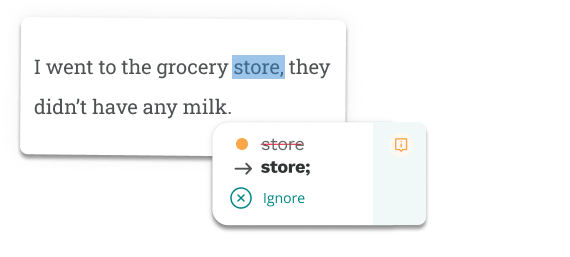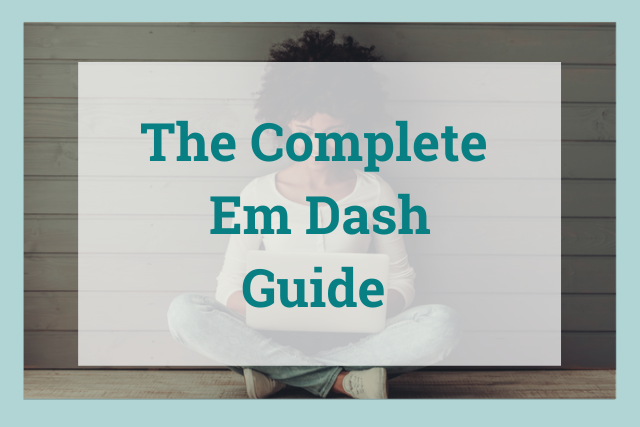
An em dash is a punctuation mark that can set apart thoughts in a sentence—it often replaces parentheses or commas like this.
Today, we’re learning what an em dash is and how to use it.
What Is an Em Dash?
The em dash can be used in place of commas, colons, semicolons, and parentheses to increase sentence variety and readability. The em dash triggers readers’ brains to insert a slightly longer pause, which can aid in reading comprehension.
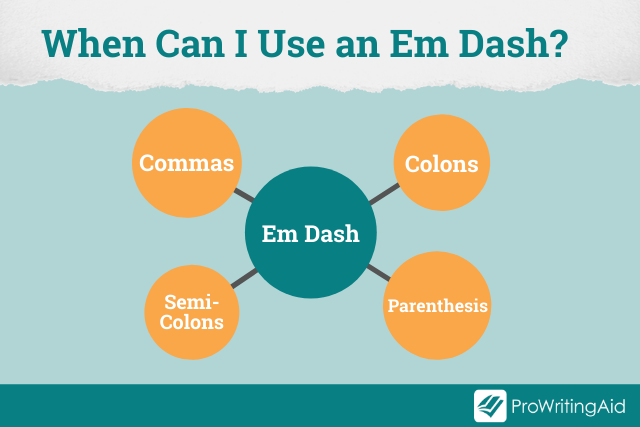
It’s a long dash, the length of two connected hyphens. It gets its name from its size which is the width of the letter M when typed. The em dash is bigger than an en dash, which is the width of the letter N.
It is important to be consistent when using dashes. ProWritingAid’s Consistency Report can help you make sure you aren’t using an en dash or double hyphen when you mean to use an em dash.
Remember, em dashes are not interchangeable with en dashes and hyphens. They all have different uses in English grammar.
What Is a Parenthetical Dash?
A parenthetical dash (em dash) offsets content in a sentence that might otherwise belong in parentheses.
Parentheses come across as being formal because they are most often used in academic and technical writing, so they may not match the voice of your piece. When parentheses are used to offset thoughts within a sentence, em dashes can take their place to make your writing less formal.
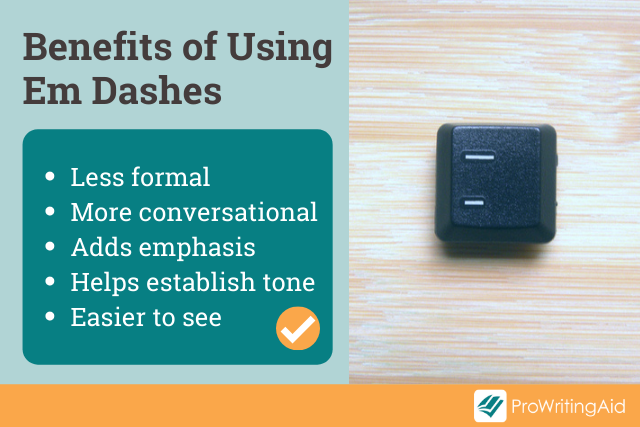
How to Use an Em Dash
An em dash is used to offset thoughts in sentences, much like colons, parentheses, and commas. Let’s look at how an em dash can replace these.
Here’s how you use em dashes to replace parentheses.
- We bought tablecloths in our wedding colors (teal, purple, and yellow) to brighten up the venue.
- We bought tablecloths in our wedding colors—teal, purple, and yellow—to brighten up the venue.
Colons are often used, similarly to em dashes, to offset thoughts and extra information, but they are used at the end of a clause.
While colons are formal, em dashes are more conversational. They also stand out more—our brains pick up on the negative space, which adds emphasis to the end of your sentence.
- I could hear my English professor’s mantra in my mind: poignancy over word count.
- I could hear my English professor’s mantra in my mind—poignancy over word count.
Em dashes can replace commas when the commas are used to offset thoughts or interject extra information.
That makes em dash rules easy to remember—remember EM for “emphasize.”
Here’s an example:
- When her father arrived, a half-hour later than expected, Liza’s party began.
- When her father arrived—a half-hour later than expected—Liza’s party began.
The em dash affects the tone of this sentence. Because the offset clause is emphasized, we can sense annoyance or anger rather than a matter-of-fact statement.
A semicolon is used when two independent clauses are closely related enough to warrant being one sentence, but a conjunction doesn’t fit well.
But, an em dash looks more informal and serves a different purpose than in our previously discussed usages—instead of emphasizing a point, it is elaborating on a point.
- Grammarians are passionate about punctuation; they have strong opinions about semicolons and em dashes.
- Grammarians are passionate about punctuation—they have strong opinions about semicolons and em dashes.
As you can see, the use of an em dash is often a stylistic choice to improve readability or elaborate or emphasize a point.
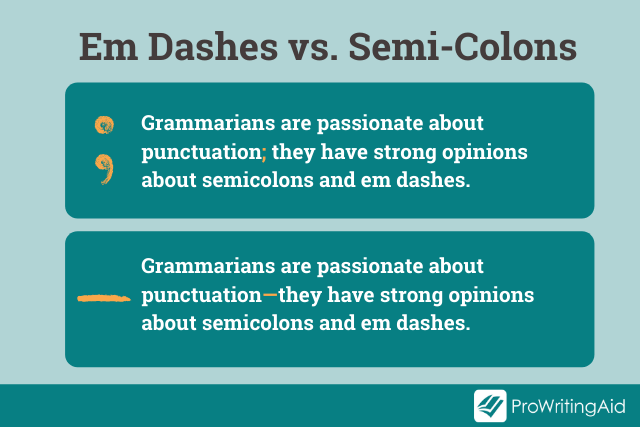
When to Use an Em Dash
When we filter words or cut off thoughts, an em dash is more than just a stylistic choice. It’s the only correct punctuation.
Filtering words is the only time you will use more than one em dash in a row, and you can never use over three.
You can use two em dashes after one or two letters as a written censor.
- “Hey, as— —! Watch where you’re going!”
Alternatively, you can use multiple em dashes to filter out an entire word that needs redacting.
- The meeting will be held at — — on Thursday.
We can also use em dashes to cut off thoughts or dialogue, as in the example below.
- “Then we went to this really nice café and he—oh! Look at that squirrel!”
Examples of Using an Em Dash in a Sentence
Here are some more examples em dashes in sentences.
- He asked—well, more like demanded—to be given the promotion.
- They had three granddaughters—Elizabeth, Jane, and Kitty.
- She graduated college—with honors—with a degree in software engineering.
- “So then she told me that he had filed for divorce for no reason—what a jerk!”
- “Well, the first thing you want to do is try restarting your compu—” He interrupted and said, “Yes, yes. I’ve already done that.”
Now you know how to use em dashes, why not try them? Change up your punctuation to enhance readability and set the right tone.
Ready to Improve Your Writing? Try ProWritingAid.
